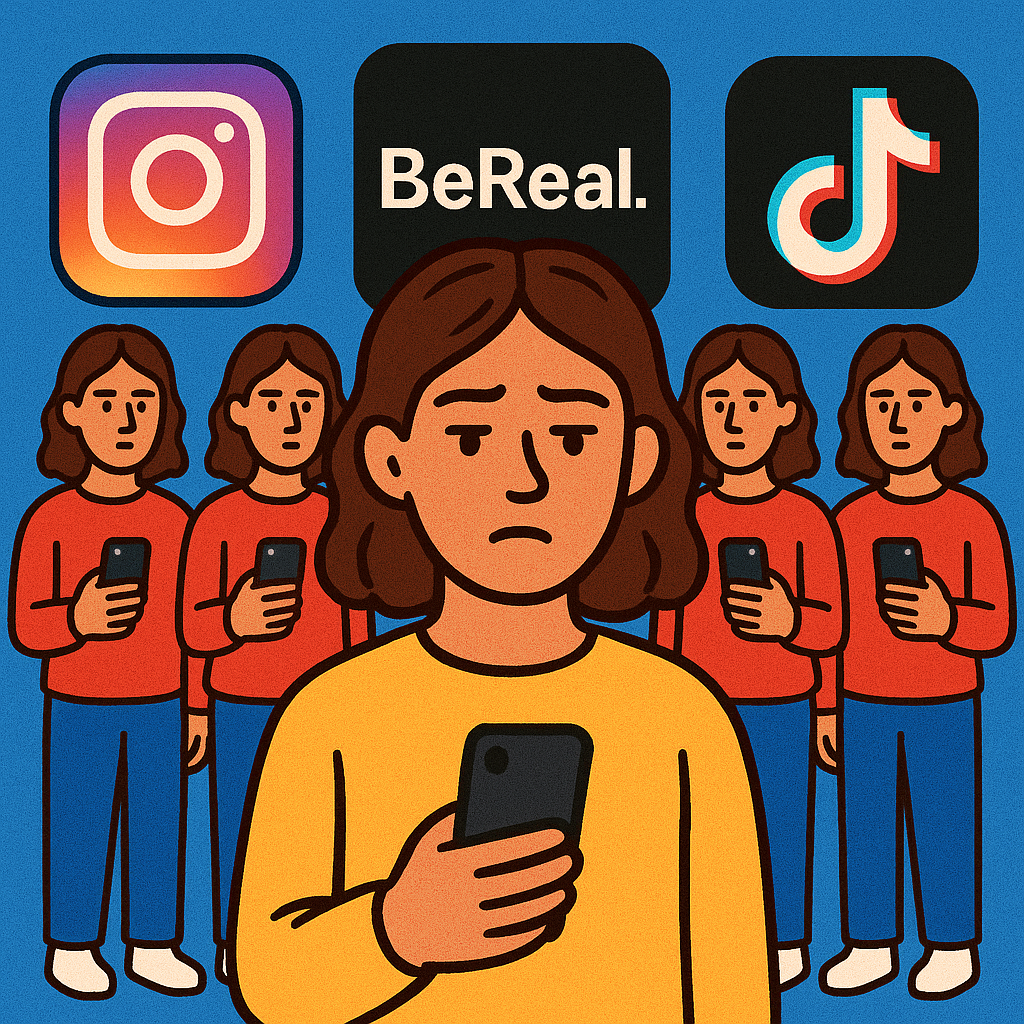Editor’s Note: The following article is an opinion piece that reflects the views of the author.
At some point in the last few years, being “relatable” became the most valuable personality trait online. Social media platforms like Instagram, TikTok, and BeReal encourage users to share candid glimpses into their lives. You scroll and see influencers posing with unmade beds, people narrating emotional breakdowns mid-story, or celebrities casually mentioning they eat cereal for dinner. The message is clear: Look! I’m just like you! But somewhere in this endless oversharing, we lost something important — our originality. Relatable used to mean human. Now it’s an aesthetic. And ironically, the pressure to appear just like everyone else is making us all strangely alike.
Relatability culture started as a rebellion. After years of glossy influencers and “perfect” lives on Instagram, audiences were over it. They wanted something raw. Something real. For a brief moment, less-filtered content felt refreshing. But like most trends online, authenticity quickly turned into performance. Trend forecaster Coco Mocoe calls this “relatability fatigue.” In an interview with Dazed, she explains how even the most “real” content — messy bedrooms, emotional rants, and bad hair days—are often curated, staged, and monetized. We’re still performing, just dressed down for the part. Even platforms that promote spontaneity haven’t escaped the act. Take BeReal: the app pushes users to share unfiltered snapshots at random times. But a 2024 study found that many users still felt pressure to present themselves in a favorable light, whether by faking casualness or delaying the post for better lighting. No matter the platform, users are constantly editing themselves to appear unedited.
Online culture thrives on repetition. Scroll through TikTok or Instagram, and you’ll see variations of the same thing: muted color palettes, quirky disclaimers, self-deprecating humor, and carefully staged “imperfection.” This version of authenticity has become formulaic, almost mechanical. Even celebrities have adopted the script. Being famous once meant being aspirational, magnetic, or, at the very least, distant. Today, many celebrities go out of their way to appear down-to-earth, flawed, and forgettable. As GQ put it, we’ve traded charisma for relatability, and in the process, we’ve lost much of what made pop culture intriguing. By flattening ourselves into content that is safe, palatable, and universally digestible, we erase the very individuality that makes people worth paying attention to.
The drive to be “relatable” doesn’t just dull creativity but it chips away at mental health. A 2024 study in Counselling and Psychotherapy Research found that teens and therapists alike are noticing the toll of constantly comparing oneself to others online. When every post is supposed to be “real” but still looks effortlessly stylish or emotionally profound, it becomes harder to separate authenticity from performance. Other research shows that this pressure to share and to do so in a way that resonates is mentally exhausting. A paper in Social Media + Society revealed that constant engagement with “authentic” content contributes to digital burnout and declining life satisfaction. In trying to maintain appearances, even the most casual ones, we’ve turned daily life into a performance and audiences, even for ourselves, are hard to please.
Relatability may have started as a counter to perfectionism, but it’s become a different kind of mold: one that flattens complexity into clichés. We don’t need to perform normalcy to be accepted. Not every detail of our lives needs to be broadcasted, softened, or made palatable. People are most interesting when they’re unapologetically themselves and not when they’re trimming their personalities to fit a trend. What social media rarely celebrates is what actually makes people compelling: contradictions, confidence, passion, and uniqueness. The pieces that don’t always translate well in a 15-second clip. In the end, striving to be relatable makes everyone predictable and though relatability may win clicks, originality leaves a mark.




